This year’s edition of the Gnawa Festival in the medina of the beautiful coastal town of Essaouira featured two spectacular fusions – between Bessekou Kouyate with Hamid El Kasri on the closing Sunday night, and on Saturday night – in the early hours of Sunday morning, in fact, on the main stage at Moulay Hassan – bassist, band leader and Miles Davis alumni Marcus Miller with Mustapha Bakbou, forging a dense, deeply rhythmic fusion to match the pounding Atlantic ocean on one side, and the long, curving bay on the other (with its own late-night beach stage in the distance).
Earlier in the day, Miller broke from rehearsals in a riyad-hotel at the top of the medina to talk about life and music, ranging from the philosophy of fusion to the deep impact of origins – both musical and genetic – and the legacy and example of working with Miles Davis. Articulate and engaging, Miller’s conversation is fascinating for his description of how today's technology means African Americans can trace their roots back and beyond the generational traumas of the Transatlantic slave trade to their African origins. His thoughts about discovering his own bass style embedded in the way the Gnawa play the ghimbri sets a musical parallel to that focus on origins.
Miller’s set with his own band was technically spectacular – Miller was truly playing out the line when it came to his bass leading from the front, back and sides – but a squalling lead guitar – too much in the mould of Miles’ later stage bands – and a tendency to fracture the flow with admittedly spectacular rhythmic about-turns made it more a restlessly impressive rather than immersive festival experience.
That all changed when Mustapha Bakbou (pictured below, with Miller) and his Gnawa returned to the stage for a short, 20-minute fusion at around 2.30 in the morning. The crow was in its tens, if not hundreds of thousands (up to half a million have flowed through Essaouira's stages in its busiest years) - the festival is one of the top three in the country. The footage on YouTube (overleaf) gives you a taste of a classic Essaouira fusion of sympathetic, energetic parts.

TIM CUMMING: The Gnawa Festival is famous for its fusions between jazz musicians and the Gnawa. What’s your take on fusion?
MARCUS MILLER: All the music that was created in America was fusion music. The blues and jazz and r&b is all a fusion, because when Africans were brought to the United States, they brought their music and their sensibility, and they encountered this music from Europe, from native America, and they interpreted it in their own way. That’s what the blues is, that’s what jazz is. So jazz is fusion by its very definition. And every music that came from jazz is also fusion. When we got to the 1980s, we gave it a proper name, we called it Fusion, but it’s always been a fusion.
To be African American is a fusion in itself. This is the spirit of the music. This is the past, and it is also the future. Once a style of music gets a title, walls come up, and all of a sudden you’re not allowed to go beyond the walls. It’s very unfortunate that some people pay attention to those walls. The future of music, the future of mankind, is in fusion, in discovering new influences and incorporating them. That’s how we survive, that’s how anyone survives. So it’s very important.
Do you hear your slap bass style in how the Ghimbri is played?
I have to admit that when I plugged in to my style of slapping the bass, I thought it started in the 1970s, maybe the 1960s, then I saw the ghimbri I thought, holy shit, this history goes back a long way. This is just two or three years ago I discovered this. I’m an old man, and I should have known this. I had my eyes opened. It is an experience, very much.
The future of music, the future of mankind, is in fusion, in discovering new influences and incorporating them. That’s how we survive, that’s how anyone survives
So it’s about finding the origin of these fusion styles. What do origins mean for you?
This is a very important era for African Americans, because up until now, whenever someone asked an African American, where are you from, we’d say, ‘North Carolina, South Carolina, Georgia,’ because that’s as far back as we knew. Our story didn’t go back any further. We knew we came from Africa but Africa is huge, we didn't know where we came from. And when we go to Africa, we look at everyone’s face to see if we can see – do I look like him? In Mali, in Senegal. But we didn’t know.
And now with new technology, we can give them blood, a bit of saliva, and they will examine it and be able to tell us, you’re from the Ivory Coast, or, you’re from Nigeria. This is incredible, because all of a sudden we’re finally connected to where we originally came from. And for people who have never had this situation, it doesn’t seem very important, but if you never knew, if the only thing that you could point to was an area where you were a slave, it is so liberating to find out where you are originally connected to. What we do is have a party, and all your friends are there. You reveal to yourself and to your friends where you’re from. It’s a very exciting moment, and I’m looking forward to that.
So, I feel this experience with Gnawa music is a continuation of that discovery. Because now, like I said, I thought slapping the bass was from the US. Of course not, you guys have been slapping the bass for centuries. Now I feel connected, and it’s a very profound very deep feeling of revelation.
If the only thing that you could point to was an area where you were a slave, it is so liberating to find out where you are originally connected to
As a musician, do you have a different way of seeing and dealing with time? What’s the role of different kinds of time in your music?
In terms of musical time, and how you play rhythm, the more and more I work, the more and more I see connections. I always, as I mentioned before, considered myself a fusion musician. I’d go into the studio with Miles Davis, and he says, I want the drummer to play this jazz beat, and I think, I’m going to play a funk bass against that jazz beat, to combine the rhythm and combine the time, because I can see it working. And when I began to compose, I did the same thing. When I wrote a piece of music for Miles, called Tutu, I wrote it after I’d left Miles’s band – I’d been with him for two years. And when I wrote it, I remembered him showing the drummer a beat from St Louis. He’d said [Miles’ whisper] "play this beat" [and scats it] and I said, okay, I think I’d like to take that beat and that time and put it with different times. I wanted it to sound like Miles Davis’ face [scats, and pulls mask-like Davis face]. I recorded that and listened back, and I could see Miles’s face, with the time. When I’m writing music for someone else, when I’ve finished with the song and I can imagine them to the time of the song, then I know I’ve written something good. That’s very important.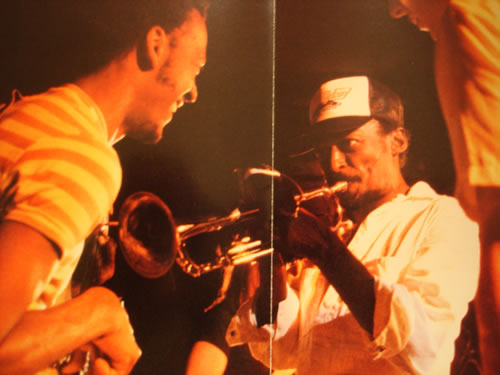
You’ve also lived through many different styles and developments in music – how has that changed your approach as a musician?
You live long enough, you start to see things repeat themselves. You start to see things happen again. One example, is the word Jazz. It wasn’t created by musicians, it was created by writers. People who were writing about music. And it was a very negative word. Jazz meant to mess something up. In other words, you’re trying to play European music and you’re messing it up, you’re screwing it up, you’re jazzing it up. And the word stuck. It’s a negative word, and after about 20 years, the musicians were saying, "we really don’t want this music to be called jazz, because it’s a negative word." And in the 1960s, we fought against this idea, this word. Finally, we realised, the word may have meant something negative when it was created, but now we had turned it into something positive.
And right now, I hear young jazz musicians complaining about the same thing. "I’ve just discovered the word jazz is a negative word. I’d like to change that." And I’m old enough now to have seen that argument before and to see it come to a conclusion, a realisation, that maybe that things that start negative can be turned into something positive. And I hope they will come to that same conclusion when they go through their journey.
The idea of taking negative things and turning them into something positive is a very powerful idea. Slaves that took the experience of being taken from your homeland and brought to another place and having your identity and your family taken from you and putting that into music and turning the music into something wonderful is a very incredible ability. If you notice, all the great cultural creations around the world, they come from poor people, people who don’t have a lot, from the ghettos. All the new dances, all the new really exciting new music comes from people who have taken a bad situation and put it into music, and turned it in to something positive. Even hip-hop music.
All the great cultural creations around the world come from people who don’t have a lot, from the ghettos. All the new dances, all the new really exciting new music comes from people who have taken a bad situation and put it into music
Hip-hop was created because they stopped teaching instruments in the schools in the 1980s. When I was growing up in the 1970s, we all had music lessons as part of our school. You did math, you did science, you did music. Then they took music out of the school. So all these people five or six years younger than me had all this music inside them, but now they had no instruments, so what do they do? They take turntables and records, play it, stop it, play it again. So they make new music out of records because they don’t have an instrument. They took the negativity of music being taken away from them and turned it into the positivity of a new form of music. This is something I see all the time, I see it happen over and over again.
Would you like to write songs for the Gnawa?
I already have three songs in my head with a Gnawa sound, you know? This was why I was so excited to come here, because I knew I would be inspired. I wrote my first song 40 years ago. If you write songs for a long time, you find yourself writing the same song. So what you have to do is put yourself in different situations, so that you can be inspired by something different. And the Gnawa Festival is a different situation for me, and this is very, very inspiring.
Would you consider future Gnawa collaborations on your records?
Yes, I'm going to do a collaboration. I’m trying to figure out when I can come back to do collaborations. My first idea was July, and I was told that may not be a good time as everyone will be really chilled out in July, because of Ramadan. So I am going to have to find a different time to come back.
When did you buy your first hat?
20 years ago, I was guest on a TV show and I was driving to the studio, and I looked in the window of a store I was passing, and I saw the hat and went in and tried it on, and wore it, and then I couldn’t take it off. It’s a pork pie hat. Very famous in the 1940s among jazz musicians. Lester Young wore a pork pie hat and when he died, Charles Mingus wrote a song called "Goodbye, Pork Pie Hat". So I like it because it keeps me connected to my jazz roots .I play funk and rock and r&b but my hat is always jazz.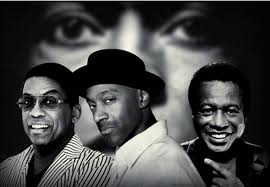
You toured with Herbie Hancock and Wayne Shorter (pictured right with Miller) a few years back. What was it like revisiting Miles’s music?
It was fantastic. What happened was, I realised it was 20 years since Miles had died. It seemed like it was only five years. It was very surprising to me. I called Herbie Hancock and said, do you realise it’s been 20 years since Miles has gone? And it was surprising to him too, and to Wayne. So we decided we should do a tribute to Miles. The problem is, what you’d expect us to do is simply get on the stage and play all of Miles’s well-known songs in the style Miles Davis did them. But we all knew that Miles Davis would HATE that. Just to repeat the past. Because Miles was truly a man of the future. Moving forward, moving forward. He never looked back.
So how did you approach it?
We had to decide how we were going to do this tribute to Miles without looking back. So for the first rehearsal, we didn’t play any music, we just talked. We talked about Miles, what we remembered about Miles, we talked about the things Miles talked about – food, cars, women, cars, women. Then we realised, why don’t we make the concert sound like this conversation? We’ll play parts of this song then go on to another song, and people will recognise it, and people will begin to see that it’s a conversation about Miles, so that’s what we did, and it was a very successful tour, and it felt very good to us, we felt Miles would’ve enjoyed hearing us.
Overleaf: watch a video of Marcus Miller and Mustapha Bekbou at the Gnawa Festival, Essaouira


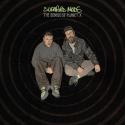

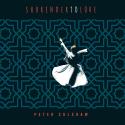




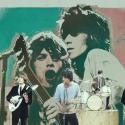
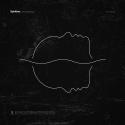

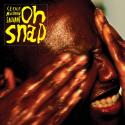

Add comment